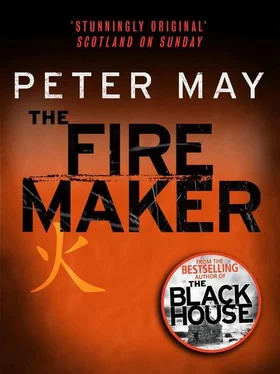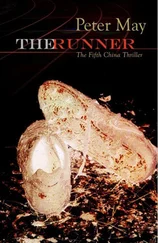‘Oh, I’m not saying that the idea in itself might not have some virtue. I’m saying that the current practice of it could be disastrous.’
‘How?’
‘Well, you think you’ve just created the perfect tomato. It is impervious to caterpillars, it’s got a long shelf-life in the shops, and you’ve saved a fortune on pesticides. But then the technology doesn’t come cheap. The company which employs the genetic engineer has spent millions on research and development, and they’re going to pass these costs on to you. And it’s not just a one-off cost, because the genetically engineered DNA is not passed on in the seeds. You have to buy them every year.
‘Then you find that the poison that was innocuous to humans in the potato has combined with another substance in the tomato to create something that thousands of people have an allergic reaction to. Some of them die. And modifying that gene to slow down the ripening and rotting? It’s ruined the taste. So even if your customers don’t have an allergic reaction to your tomatoes, they don’t like the taste of them. You’re ruined.’
She grinned at the expression on his face. ‘But do you know what else? In moving these genes about, the geneticists used another gene that had nothing to do with either the potato or the tomato. They call it a “marker” gene. All it does is allow them to check up quickly and easily on the results of moving the other genes about. But this gene was taken from a bacterium which just happened to be resistant to an antibiotic widely used in the treatment of killer diseases in humans. So what’s happening now? The people who eat your tomatoes, who don’t die of an allergic reaction, become resistant to certain types of antibiotic and start dying from diseases that have been under control for decades.’
He stared at her in disbelief. ‘But surely the tomato would have been tested first? These problems would have been seen and they would have stopped growing them.’ A symphony of horns sounded behind them. The traffic had moved on and Li had not. He slipped the Jeep hurriedly in gear and lurched forward.
‘You would think so, wouldn’t you?’ said Margaret. ‘But the companies that put up the cash for research and development want their money back. And the scientists who developed the technology are so arrogant they believe that a technology which is only a dozen or so years old can replace an ecological balance that nature took three billion years to arrive at.
‘So they are all prepared to ignore the evidence, or deny it exists. I mean, there’s already been one genetically engineered soybean found to cause severe allergic reactions in people who’ve eaten it. Then there was a bacterium genetically modified to produce large amounts of a food supplement that killed thirty-seven people and permanently disabled another fifteen hundred in the United States.
‘Crops that have been genetically modified to resist herbicides and pesticides can pass on that resistance through cross-pollination, creating “super-weeds” that simply beat the original crop hands down in the fight for space in the soil.
‘Hey, and do you know what else…?’ Her nose wrinkled in disgust as she thought about it. ‘They’re now taking genes out of animals and fish and putting them into plants. A potato with chicken genes in it to increase resistance to disease. Lovely if you’re a vegetarian. Tomatoes with genes from a flounder — can you believe it! — to help reduce freezer damage. In some crops they’ve even used the gene that creates the poison in scorpions to create built-in insecticide.’
Li nodded. ‘It is a great delicacy in China.’
She looked at him, puzzled. ‘What is?’
‘Scorpion. Deep fried. Eaten for medicinal purposes.’
‘You’re kidding me.’
‘No,’ he said very seriously. ‘It is true. But I wouldn’t recommend them. They taste like shit.’
‘Yeah, and I can just imagine how the toxin genes might make my porridge taste.’ Her smile faded. ‘The thing is, all this is just the tip of the iceberg, Li Yan. Scientists are releasing modified bacteria and viruses into the environment in vast quantities through the introduction of genetically engineered crops. And they haven’t a clue what the long-term effects will be. Jesus, in ten years, it’s doubtful if there will be a single food left on the planet that hasn’t been genetically tampered with, and there’s not a damned thing any of us can do about it.’ She took a deep breath. ‘And do you know why?’
‘Why?’
She paused for effect. ‘Money. That’s what motivates the whole science. Research into biotechnology will be worth around one hundred billion dollars by the turn of the millennium. They tell us it’s for “the good of mankind”, to feed the hungry millions of the world. But there is not a shred of evidence that the technology will be any cheaper, or any more productive in the long term.
‘When they ran into trouble with regulators in the States, the big biochemical companies simply started moving their projects to other parts of the world. Like China. Places where there is little or no regulation to govern the commercial introduction of genetically modified crops. And do you know what’s interesting? When one of these companies comes up with a crop that’s resistant to a certain herbicide, guess who also manufactures that herbicide.’
‘The same company?’
‘You’re catching on. And instead of reducing the amount of herbicide we’re polluting our planet with, we’ll be using even more, because the crop we’re growing is resistant to it.’
She slapped her palms on her thighs. ‘Jesus, it makes me so mad! And these goddamn scientists! Philanthropists? Like hell. They’ll do anything to keep the funding coming in from the biochemical companies so they can carry on playing God. And don’t believe the myth about these crops bringing down costs and increasing yield to feed the third world. Remember the guy with the tomatoes — the fact that he has to buy fresh seeds every year? Well, that’s what farmers in the third world are going to have to do, too. And who will they have to buy them from? Well, the biochemical companies, of course — who also control the price.’
Li shook his head. ‘This is all a bit too much for me. I mean, all I know is that they brought in this super-rice three years ago and they have doubled production. There is no hunger in China. For the first time we are major exporters of food to other countries.’
Margaret shrugged, passion finally spent. And she wondered what point there had ever been in it. There was nothing she could do to change the way things were. ‘I guess,’ she sighed. ‘Like I said, it’s not as if the technology might not have some benefits. It’s the long term I worry about. The consequences we can’t possibly predict that are going to affect our children, or our children’s children.’
Li growled and banged the steering wheel. The traffic had ground to yet another halt. ‘What’s the time?’ he asked.
‘Nearly half past.’
He shook his head. ‘We’ll be here all day at this rate.’ He opened his window and placed the red light on the roof, flicked it on and activated his siren. ‘Hold on,’ he said, and started nudging his way out of the gridlock and into the cycle lane, where they picked up speed, bicycles parting in panic ahead of them. He flicked her a glance. ‘Now that the window is down anyway, maybe you wouldn’t mind if I had a cigarette? After everything you have told me it can’t be as bad for me as eating.’
‘Don’t count on it,’ she said. ‘You wouldn’t believe the genes they’ve been putting in tobacco plants.’
The great paved concourse in front of Beijing railway station was jammed with rush-hour commuters. Modern twin clock towers separated by a gigantic digital display rose above broad steps leading to the main entrance, where baggage was being run through X-ray machines under the watchful eye of armed policemen. Li nosed the Jeep over the sidewalk and on to the concourse, exchanging horn blasts with buses and taxis. By now he had cut the siren and brought the flashing red light back inside. So he was just another anonymous citizen in a Beijing Jeep. A couple of girls sweeping up litter with old-fashioned straw brooms, and clever shovels with mouths that opened and closed like hungry dogs, shouted imprecations at the Jeep for forcing them to move out of the way. They could have been no more than seventeen or eighteen, dressed in baggy blue overalls and white tee-shirts. They had large pale blue bandanas wrapped around their faces to protect them from dust billowing up from the concrete as they swept. Red motorised baggage trolleys weaved their way among the crowds. Groups of travellers sat patiently on the steps in the shade of black umbrellas, luggage piled high all around them. Margaret followed Li into the ticket hall in the station’s west wing.
Читать дальше












